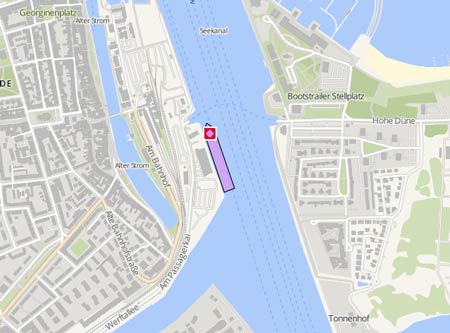RUBY
Latest ports
Latest Waypoints
Latest news
Explosive Russian cargo reached Abidjan
The 'Zimrada' with a cargo of around 20,000 tons of ammonium nitrate , which had been transferred from the 'Ruby' onto the ship, has arrived off Abidjan on Dec 30, 2024, and dropped anchor. The cargo had been shipped from the Russian port of Kandalaksha on Aug 22, 2024. After the 'Ruby' ran aground due to inclement weather, causing damage to the vessel’s hull and propeller, the vessel, arrived for repairs at the port of Tromsø, where it caused the first controversy due to the sheer amount of explosives that was aboard the vessel. The vessel was sent away and subsequently denied entry to ports in Norway, Lithuania, and Sweden due to the dangerous nature of the cargo. A shipyard in Lithuania was supposed to offer repairs to the vessel, but the authorities prohibited it from entering until the cargo was removed. Later, the vessel was allowed to dock at the port of Great Yarmouth, where the ammonium nitrate was reported to be contaminated with the ship’s fuel and seawater due to the grounding of the vessel, thus decreasing the stability of the explosive and making it more dangerous. This contaminated cargo, which weighed around 300 tons, was then dumped into the ocean after discussions with relevant authorities in the UK at a site that offered the lowest possible environmental impact. This sparked local outrage and environmental concerns. The remaining cargo was then transferred to the 'Zimrida', which left the port of Great Yarmouth on Dec 16. The 'Ruby' remained stationary in Tyne as of Jan 4, 2025.
Bulk carrier left Great Yarmouth en route to Tyne
After unloading of its cargo of 20,000 tonnes of ammonium nitrate, the 'Ruby' has left Great Yarmouth on Dec 1 towards the port of Tyne, a little further north, where it berthed on Dec 5. It could be repaired there, the port having a shipyard belonging to A&P Group. Its cargo was loaded onto the Algerian bulk carrier 'Zimrida'.
Ship expected to leave soon
The 'Ruby' is expected to leave the port of Great Yarmouth after transshipping the cargo of 20,000 tonnes of ammonium nitrate. A few days ago, new concerns had emerged following a brief departure of the ship which dumped 300 tonnes of its cargo into the sea, a manoeuvre directly authorised by the British government. These 300 tonnes were apparently contaminated when the ship ran aground, and seawater and fuel came into contact with the ammonium nitrate. Hence the decision to dump it in a site that the authorities announced they had chosen carefully for minimal environmental impact, an estimate that was far from unanimous among a number of local residents and environmental associations. The ship should now be able to set sail on ballast to be repaired.
Upload News

